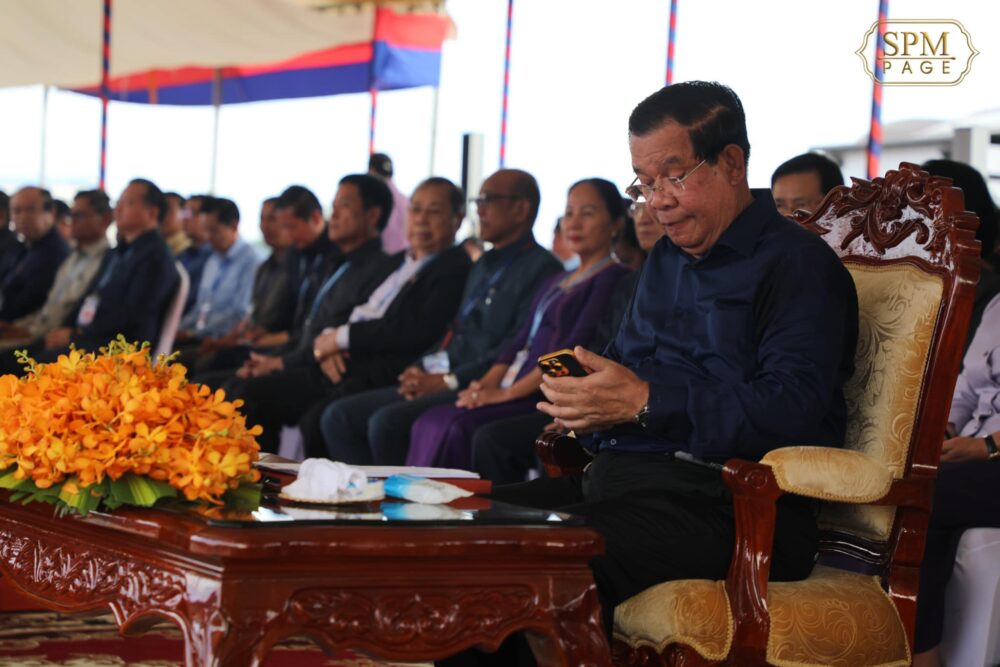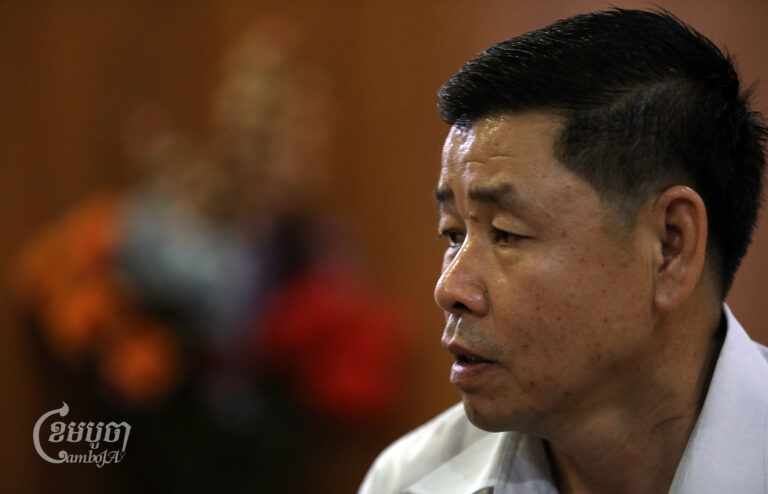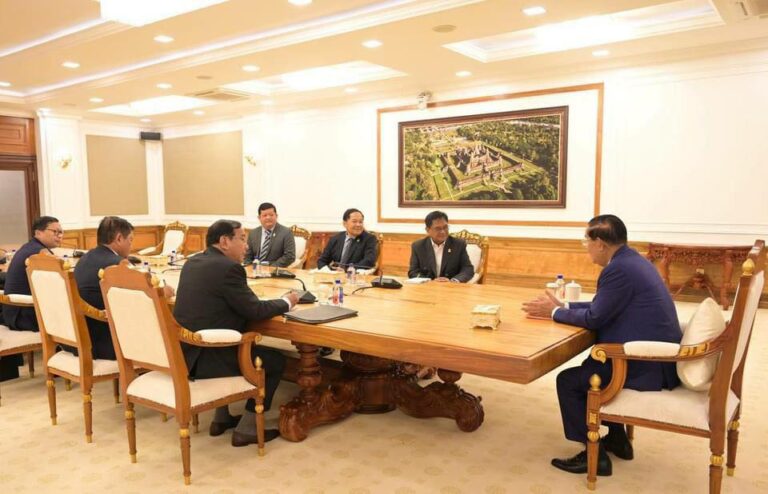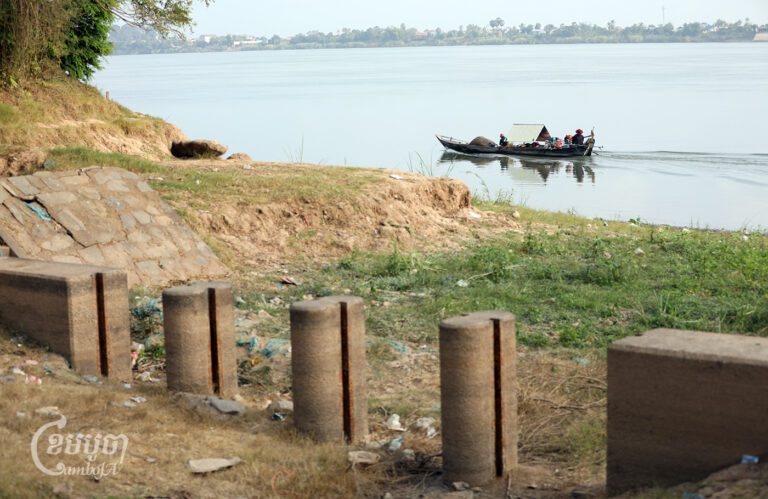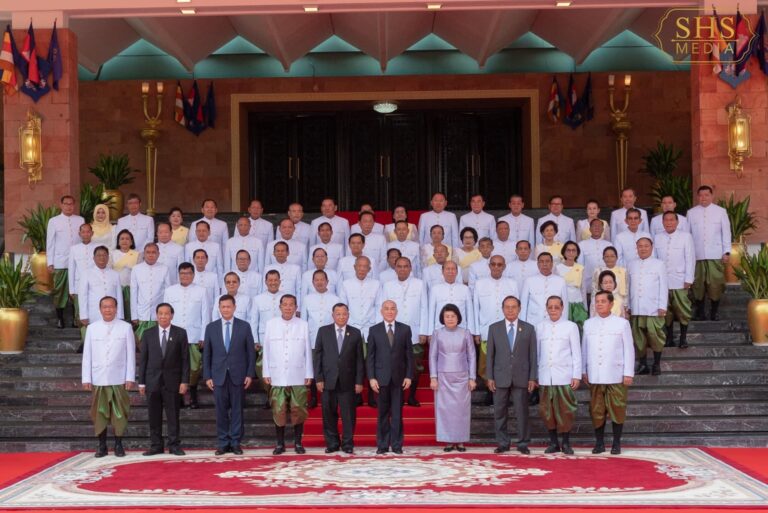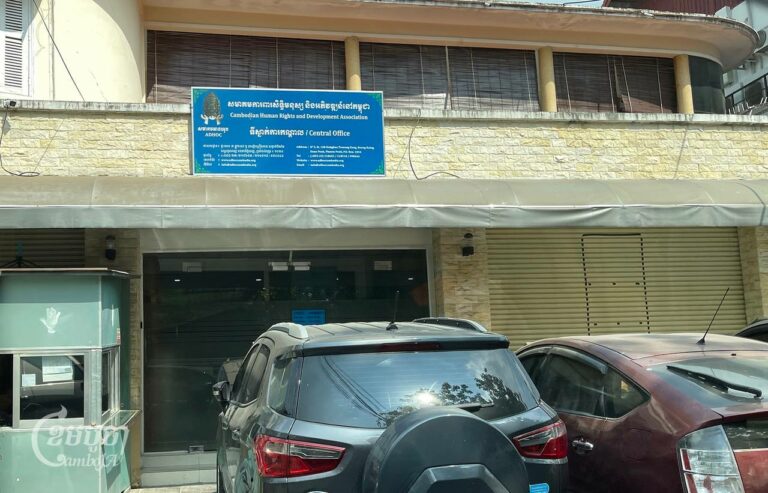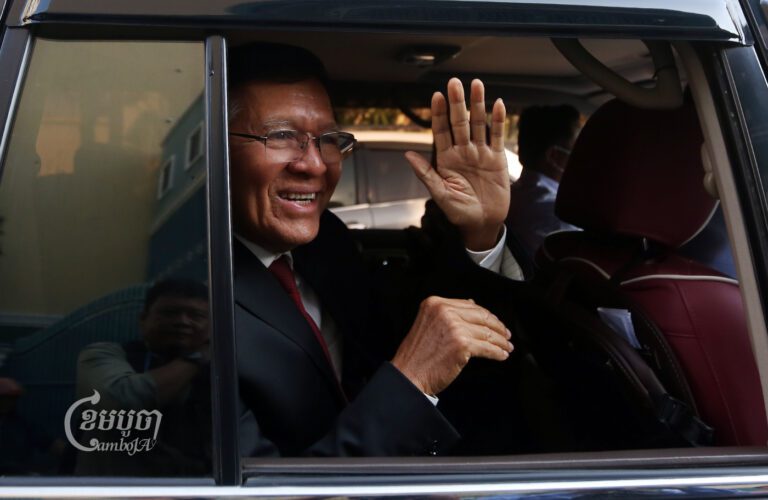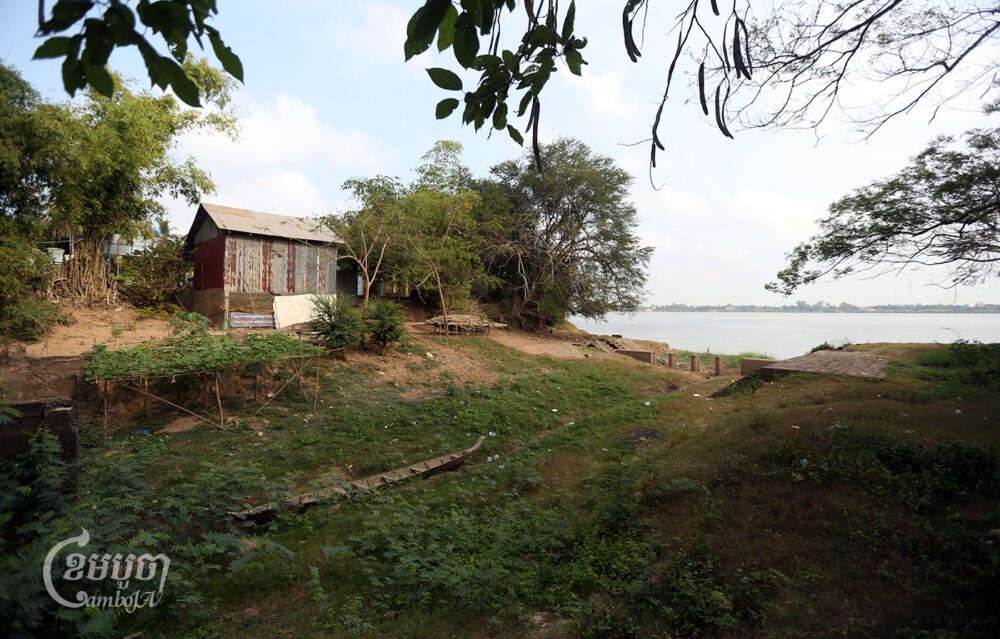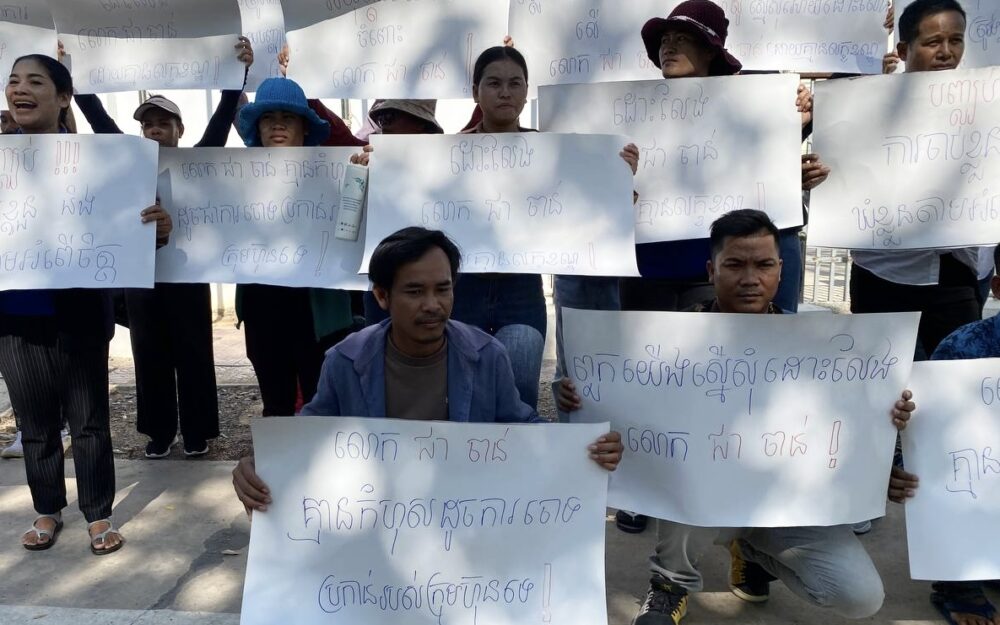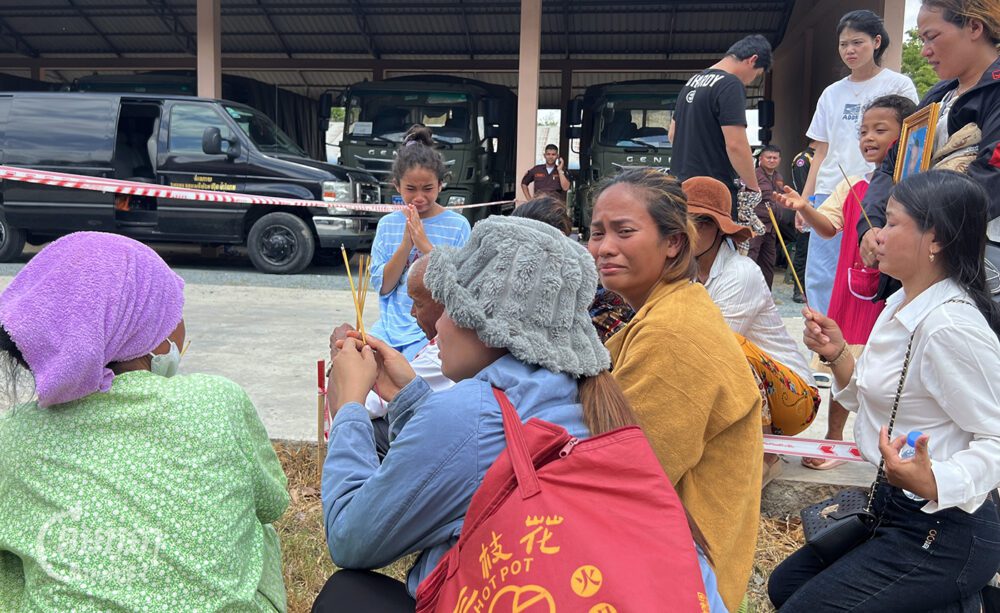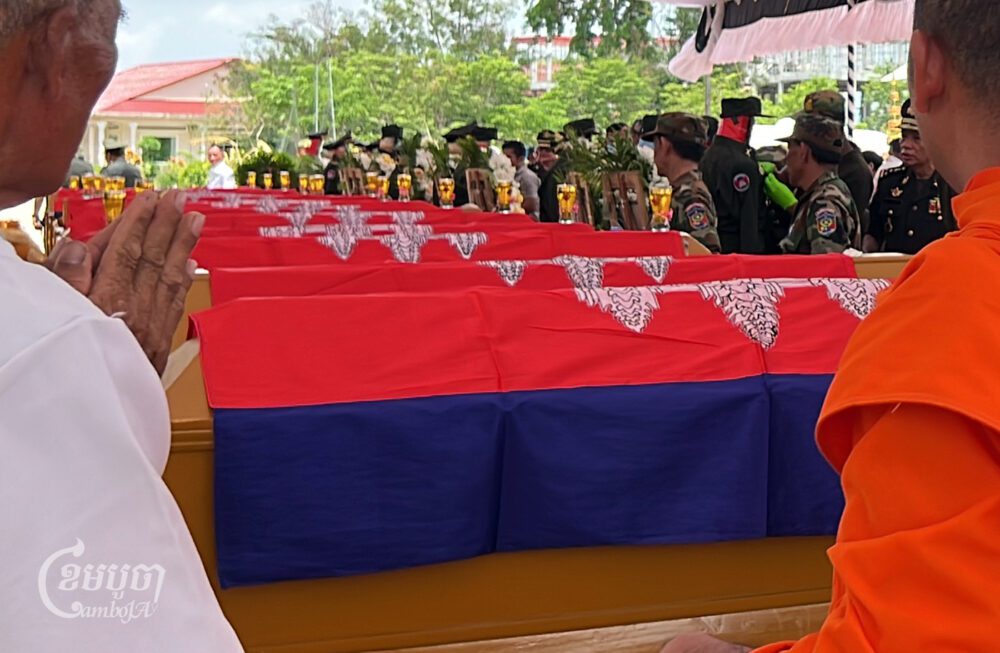An oversight board linked to the social media company Meta has recommended a six-month suspension of Prime Minister Hun Sen’s Facebook and Instagram accounts for an incendiary speech he posted earlier this year threatening to use “a stick” against opposition opponents.
The decision was likely preempted by the prime minister who announced late Wednesday night that he was going to primarily use Telegram to communicate with Cambodians and stop posting on Facebook.
Meta’s Oversight Board ruled on Thursday that a January 8 Hun Sen speech given in Kampong Cham province violated Facebook’s community standards by threatening violence against political opponents.
“There are two choices: the first is to use legal actions,” Hun Sen said in January. “And the second is to use a stick. This means that I will gather all the CPP’s supporters to hold a demonstration and hit you. So, which one do you prefer?”
The Oversight Board rejected Meta’s decision to keep the video on the platform for its newsworthiness, saying Hun Sen’s reach on social media allowed the threat to spread more widely.
“The Board is also concerned that a political leader’s sustained campaign of harassment and intimidation against independent media and the political opposition can become a factor in a newsworthiness assessment that leads to violating content not being removed and the account avoiding penalties,” the ruling reads.
“Such behavior should not be rewarded.”
The board’s decisions to uphold or reverse Facebook’s content decisions are binding and Facebook must follow the rulings unless doing so would violate the law.
Apart from recommending a suspension of Hun Sen’s Facebook and Instagram accounts, the board also directed Meta to review its newsworthiness allowance policy to exclude calls for violence.
In March, the Oversight Board, a group of independent experts that can overturn Meta’s content decisions, announced it would consider an appeal to remove the video.
Less than 24 hours before the board’s decision was made public, Hun Sen announced he would no longer post on Facebook.
“Telegram is more effective compared to Facebook. From now on I will broadcast news, including live broadcasts, only on Telegram. Now more than 850,000 people [follow me on Telegram],” he stated on his public Telegram channel Wednesday evening.
The prime minister reiterated his intentions in a speech Thursday morning, adding that using Telegram will allow him to communicate with people in countries that do not use Facebook, presumably referring to China.
“From now on, I will not use Facebook anymore. Although I will keep [my Facebook account], I will not post or provide information on Facebook,” he said. “Since yesterday, I have not posted or put any information on Facebook.”
Following his speech, Hun Sen posted twice on Facebook as of Thursday at 6 p.m.
The prime minister is a prolific Facebook user and has migrated a large part of his government’s communication efforts to the platform. He often responds to citizen’s queries or complaints through comments on his Facebook posts and encourages people to send their grievances via the platform.
Apart from official work, Hun Sen also uses Facebook to post personal photos of him golfing or swimming in Preah Sihanouk, and to livestream TV shows or “peace songs.”
However, his embrace of Facebook has come with its share of controversy. The government has been accused of using the platform to surveil Cambodians, with dissidents often facing court charges for posts on the platform. Social media analytics also revealed that Hun Sen’s Facebook had a disproportionate number of followers from countries like India and the Philippines.
The prime minister also said on Thursday he had embraced another social media platform, TikTok, so that he can communicate with more young people. The first video on the account, in which he goes through a woman’s purse and then puts an envelope in it, was posted on Wednesday. The account has more than 18,000 followers as of Thursday evening.
After creating a new account, an assistant to the prime minister posted on Facebook asking for the owner of a Hun Sen-themed TikTok account with over 300,000 followers to get in touch with him for a chance at a job as Hun Sen’s assistant.
Duong Dara, an assistant to Hun Sen who works on the social media team, said he would not comment on the Oversight Board’s findings.
“What I do not know about I cannot speak about it,” Dara said Thursday evening.
However, he was more forthcoming when CamboJA spoke to him prior to the Oversight Board’s decision. Dara said the prime minister wanted to stop using Facebook in part because the government is “not happy” with Facebook’s policies which are too “strict.”
“The community standards [for Facebook] are strict. Even for advertising it is also strict,” he added, saying that Facebook won’t allow pictures of blood on its platform.
The decision comes 36 hours before Hun Sen leads the CPP into an election campaign, which his party is most likely to win.
Sok Eysan, a CPP spokesperson, was unsure why Facebook was concerned about a speech Hun Sen made in public.
“I wonder why Facebook wants to [block him]. Samdech said it publicly to a crowd of people he was visiting and posted it to his own Facebook. But why does Facebook care about this?” Eysan said, using an honorific for Hun Sen.
In an email sent prior to the Oversight Board decision, Heng Pheakday, Meta Cambodia public policy manager, said he was not authorized to speak to journalists on behalf of the company. He said Meta’s communications team would generally be able to respond, but after “the layoff” there is no longer communications support for Cambodia.
“Cambodia PM Hun Sen is finally being called out for using social media to incite violence against his opponents, and he apparently doesn’t like it one bit. That’s the real story about why he’s running away from Facebook,” said Human Rights Watch Deputy Asia Director Phil Robertson in an emailed statement.
“The stakes are high because plenty of real world harm is caused when an authoritarian uses social media to incite violence — as we have already seen far too many times in Cambodia,” he said.
The International Commission of Jurists, whose concerns the Oversight Board cited in its decision, said it welcomed the announcement. In a statement, the organization said it stresses that online platforms should be available for freedom of expression without undue restrictions.
“One of the very few limitations that is mandatory, however, is the disallowance of incitement to violence. It is especially critical to impose a restriction where this a strong risk that the inciting words of a powerful actor like a Prime Minister may be acted upon,” the statement said.
Note: This story was updated at 8:48 pm to reflect the time of a Meta representative’s comments.


